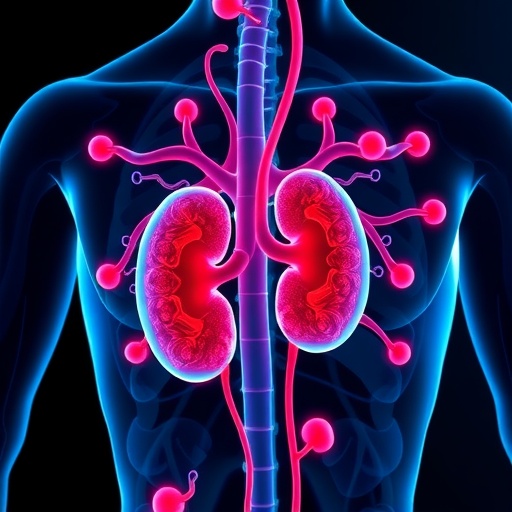In a landmark move poised to redefine the approach to cardiometabolic health, the American Heart Association (AHA) has acquired the program assets of the Cardiometabolic Center Alliance (CMCA). This strategic acquisition marks a pivotal step in the ongoing evolution of integrated care models targeted at the complex interplay of cardiovascular, kidney, and metabolic diseases. By consolidating their missions and resources, these organizations aim to advance a patient-centered, multidisciplinary approach to managing these interrelated conditions more effectively.
The CMCA, originally founded in 2020 under the auspices of Saint Luke’s Mid America Heart Institute in Kansas City, Missouri, emerged from an innovative vision led by Mikhail Kosiborod, M.D. It sought to challenge traditional fragmented care paradigms where Type 2 diabetes, pre-diabetes, and cardiovascular conditions have often been addressed in isolation. Instead, CMCA introduced a novel model emphasizing comprehensive risk reduction through coordinated, team-based care tailored to each patient’s unique clinical profile.
This approach is grounded in the recognition that cardiometabolic disorders share overlapping pathophysiological mechanisms, including insulin resistance, systemic inflammation, and endothelial dysfunction, which collectively exacerbate morbidity and mortality risks. By adopting a holistic treatment framework, the CMCA’s protocol prioritizes simultaneous management of glycemic control, lipid abnormalities, hypertension, and renal function—all critical determinants in the trajectory of these diseases.
Clinical outcomes attained under this integrated care model have been compelling. Data accrued over five years from the CMCA’s consortium of 22 member centers demonstrated statistically significant improvements in guideline-directed medical therapy adherence and reductions in adverse cardiovascular events. Such evidence underscores the efficacy of a standardized protocol that transcends traditional specialty silos, fostering seamless communication between endocrinologists, cardiologists, nephrologists, and primary care providers.
The acquisition of CMCA’s assets by the AHA is set to amplify these advances on a national scale. Leveraging the AHA’s expansive infrastructure and influence, the initiative will evolve into a Cardiovascular-Kidney-Metabolic Center of Excellence certification program. This program will provide a rigorous framework for clinical best practices and facilitate dissemination of CMCA’s comprehensive care protocols, thereby enhancing consistency and quality across diverse healthcare environments.
Melissa Magwire, RN, MSN, CDCES, director of the CMCA program, reflected on the transition: “The alignment with the American Heart Association empowers us to extend the reach of our care model exponentially. Our members’ dedication has propelled meaningful progress in managing cardiometabolic diseases, and now, with greater resources, we can impact outcome trajectories for a vastly larger patient population.”
Moreover, the integration embodies a forward-thinking response to the escalating prevalence of cardiometabolic conditions, which constitute global public health challenges due to their rising incidence and associated healthcare burdens. The synergy between the CMCA’s evidence-based care model and the AHA’s longstanding commitment to cardiovascular and stroke research positions this collaboration at the forefront of efforts to curb disease progression through prevention and early intervention.
Scientific leadership from both entities will drive the continual refinement of clinical protocols, incorporating emerging findings from cardiovascular, renal, and metabolic medicine. This dynamic feedback loop ensures that patient management strategies remain aligned with the latest therapeutic advances, including precision medicine approaches and novel pharmacotherapies designed to target multifactorial disease processes.
Importantly, the patient-centered care ethos anchors the collaboration’s vision. Recognizing that chronic disease management is inherently complex and requires sustained engagement, the model incorporates multidisciplinary teams featuring physicians, nurses, dietitians, diabetes educators, and behavioral specialists. This structure facilitates tailored education, adherence support, and psychosocial interventions critical to long-term success.
Mariell Jessup, M.D., FAHA, Chief Science & Medical Officer of the American Heart Association, emphasized the transformational potential of this union: “By combining the American Heart Association’s scientific rigor with the CMCA’s pioneering clinical model, we unlock unprecedented opportunities to revolutionize cardiometabolic care. This collaborative effort is uniquely positioned to mitigate disease burdens and extend healthy life spans.”
As CMCA leadership transitions to key roles within the AHA, the alliance’s foundational principles will persist and evolve. The commitment to data-driven quality improvement, standardized care delivery, and multidisciplinary team collaboration remains central, fostering a new paradigm that other healthcare systems are poised to emulate.
This acquisition stands as a testament to the power of collaborative innovation in healthcare. By breaking down traditional barriers between specialties and addressing complex chronic illnesses through an integrated lens, the combined efforts of the AHA and CMCA illuminate a future where comprehensive, patient-centered cardiometabolic care is the standard rather than the exception.
Subject of Research: Integrated care models for cardiometabolic disease encompassing cardiovascular, kidney, and metabolic system management.
Article Title: The American Heart Association Joins Forces with Cardiometabolic Center Alliance to Pioneer Integrated Cardiometabolic Care
News Publication Date: October 1, 2025
Web References:
– https://heart.org/en
– https://x.com/HeartNews
– https://x.com/American_Heart
Keywords: Cardiometabolic disease, integrated care, cardiovascular disease, Type 2 diabetes, kidney disease, patient-centered care, multidisciplinary team, clinical outcomes, guideline-directed medical therapy, preventive cardiology, chronic disease management, healthcare innovation




